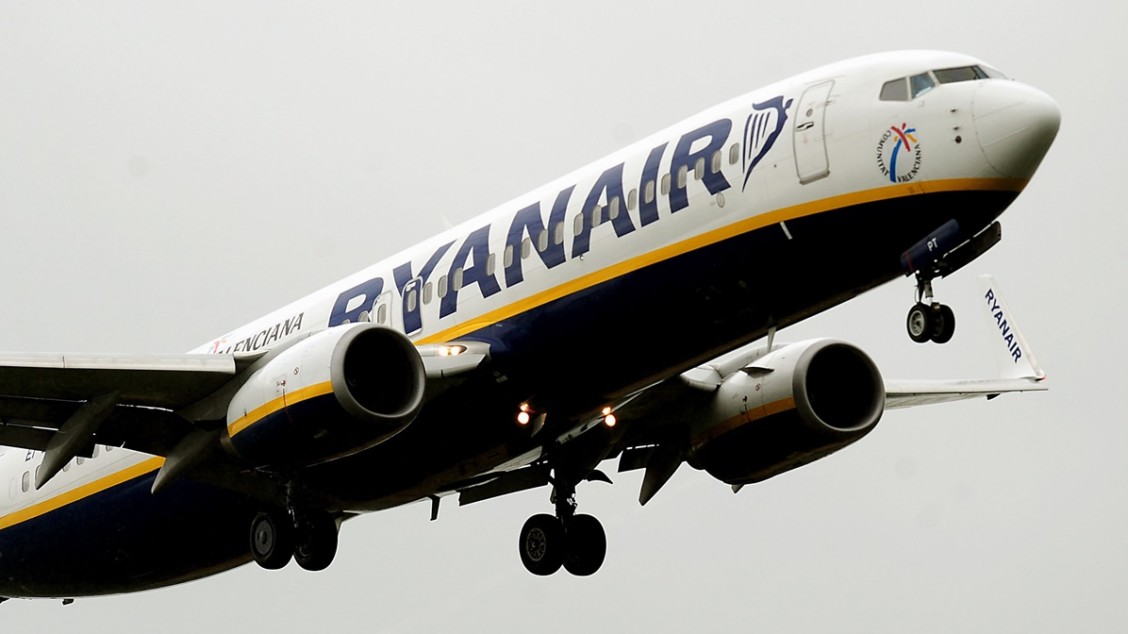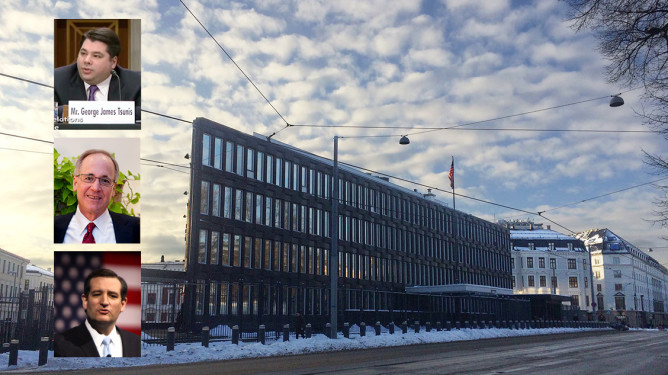The de-regulation of aviation has apparently led to some benefits, but the unforeseen costs demands a re-regulation of aviation.
When you’re flying, have you ever given much thought to the employment conditions of the airline’s pilot and crew? Most probably not – and for good reason too.
One might be forgiven for thinking that a job in the airline business is a good one with decent perks, not least the opportunity to visit new locations and stay in nice hotels. For this reason, the level of awareness when it comes to employment conditions in aviation, is incredibly low.
The next time you’re flying, just ask the person next to you the question: Do you think the person flying this plane is on a good number? It’s most likely that your fellow traveler will be quite surprised to learn that it is highly probable that the pilot has paid the most for their seat.
This variety allows airlines to engage in what is termed regime shopping.
In a recent report “The De-regulation by Civil Aviation. Social costs and benefits”, by the Norwegian Work Research Institute (AFI), the authors Darragh Golden and Anders Underthun surveyed the academic literature on the impact of deregulation on the civil aviation sector in a bid to ascertain the social benefits and risks. The scope of the study was broad in terms of geography – the U.S., Europe and Norway – and chronology. Deregulation began in earnest in the U.S. in 1978.
Findings in the report show that despite economic consolidation, the benefits purported by the priests of deregulation have not materialized. “De-regulation has caused a significant erosion of infrastructure and loss of flight connections”. The American experience has produced a plethora of academic articles. However, to what extent deregulation has produced the desired outcomes continues to be a source of debate. The European deregulatory experience has been more piecemeal by comparison, but by no means has it been less complex. The source of this complexity has to do with the variety of national social and tax regimes. This variety allows airlines to engage in what is termed “regime shopping”.
This involves using sophisticated business and employment models in a bid to lower costs. A recent Europe-wide study surveyed over 6,600 pilots and highlighted the unsavory hiring practices that airlines indulge in.
Ryanair has been the trendsetter in no-frills flying.
To a large extent, the culprits are low cost carriers, however, legacy carriers, as a result, are coming under increased pressure to imitate the low cost model. Known as the Ghent report (2015), its authors argue that such chicanery, which includes hiring pilots via temporary agencies, bogus self-employment and even zero hour contracts, does not bode well for the airline industry and could irreparably threaten its reputation for safety.
In particular, the AFI-report draws on the different models adopted by Ryanair and Norwegian, two airlines whose relevance to Norway is clear, especially the latter. In Europe, Ryanair has been the trendsetter in no-frills flying. More recently, however, Norwegian has been hot on its heels and its growth has been stellar. Both Ryanair and Norwegian claim Southwest Airlines in the U.S. as their inspiration.
The latter certainly revolutionized the airline business in terms of efficiency, but even against a backdrop of neoliberal employment practices, Southwest remained committed to the standard employment contract and sought to build a family-oriented employee culture. The Southwest exemplar is living proof that an airline can treat its workers with dignity, engage with unions and be highly profitable at the same time.
Where Ryanair has a fragmented employment model adopting a variety of practices for hiring pilots, Norwegian has a clear penchant for hiring pilots via a temporary work agency, usually OSM Aviation, in which Norwegian hold a 50 per cent share. In addition, Norwegian has pipped Ryanair to entering the long haul market and this decision has created a further difference between the two airlines with regard to their business models.
Neither is Norwegian too keen on exporting Norway’s employment model to the U.S.
Norwegian has created a number of subsidiaries, such as Norwegian Long Haul, which offers cheap seats to North America and Asian destinations. Notwithstanding the creation of a new subsidiary, the penchant for temporary agency work continues. Only this time, the crew are Asian, and most likely hired according to Asian employment standard and wages.
The most recent subsidiary, Norwegian Air International (NAI), has been a source of considerable controversy and media attention. Registered in Ireland, and despite already possessing a permit to fly to the U.S., with Norwegian Long Haul, NAI has applied to Washington for another permit. This development has raised the specter of “flags of convenience” visiting the aviation industry.
According to Norwegian, the reason for following Ryanair’s example and registering in Ireland has nothing to do with the fact that the lax Irish regulatory environment means that, unlike Norway, work permits are not necessary for extra-European crew-members. Nor has it anything to do with Ireland having one of the lowest corporation tax rates in Europe. Perish the thought.
A great deal of journeys are undertaken in the name of business.
The delay in granting NAI a foreign carriers permit is unprecedented and is indicative of the chicanery that has beset the airline industry. The request will most probably be left to the next administration to decide upon. In the meantime, the Norwegian government has decided to amend the legislation so as to facilitate Asian crew on aircraft. According to the government, the change was introduced so as to “follow its obligations under international law in the aviation industry”.
However, it most likely has less to do with international obligations and more to do with pressure coming from certain quarters in the Norwegian airline business.
Neither is Norwegian too keen on exporting Norway’s employment model to the U.S. Recently, the airline even attempted to thwart a vote, which if successful would have resulted in a loss of collective bargaining rights for employees, by arguing that the crew members were directly employed by OSM Aviation and not by Norwegian.
The National Mediation Board saw through this unscrupulous exploit and deemed Norwegian the employer as well as bestowing the crew members with collective bargaining rights. Such goings on raise the question as to whether Norwegian are truly worthy of the name. Maybe Northeast Airlines is a better option as Norwegian now appears diametrically opposed to the Southwest model.
Rygge isn’t the first and, given Ryanair’s antics, it most certainly won’t be the last.
There is no doubt that greater competition in the airline business has broadened people’s horizons and benefitted leisure and tourism. However, not all travel is for leisure purposes. A great deal of journeys are undertaken in the name of business. Here, businesses are dependent on a degree of certainty. Regularly, we see advertisement campaigns by airlines announcing new destinations. Less of a furore is made of service reductions or even complete base abandonments.
Less again is made of the long-term consequences of such decisions, which inevitably result in job losses at best and complete airport closure at worst. Here, Rygge Airport in Norway is a case in point with an expected loss of approximately one thousand jobs after Ryanair decided to close down their base. Unfortunately, Rygge isn’t the first and, given Ryanair’s antics, it most certainly won’t be the last. Nevertheless, local families and businesses will be left to pick up the pieces.
Pilots fly while sick because they are paid per hour flown.
There is no questioning the aviation industry’s safety record, however, there is evidence that non-standard types of employment are undermining a culture of safety. This point is made forcefully by the Ghent report. Astonishingly, over 60 per cent of pilots surveyed had changed employer seven times. Also, one pilot out of every six surveyed was found to be working under “atypical” conditions. To quote one pilot: “Pilots fly while sick because they are paid per hour flown. No kind of pressure should be put on pilots and their decisions when calling sick. Now there is fear/pressure from the company and huge training accumulated debts to be paid.”
The authors of the AFI-report point to a number of examples whereby safety standards, previously taken for granted, have been undermined. Increased pressure and strain coupled with atypical employment have beleaguered the airline industry and while in other economic sectors the “race to the bottom” is an oft-used phrase to describe developments associated with neoliberal globalization, in aviation the term carries more far-reaching consequences.
In addressing these challenges, a number of recommendations are made which can be grouped into four broad approaches.
The unforeseen costs demands a re-regulation of aviation.
Firstly, ensuring the continuance of a culture of safety is paramount. Secondly, addressing regulatory loopholes that facilitate social dumping by clarifying key concepts such as “operator” and “home base” is necessary to create a level playing field. Thirdly, when engaging with the so-called Middle East 3, a European strategy is essential so as to counter a divide and conquer strategy. Lastly, increased demand for aviation must be met with a commitment to well-trained pilots with pay-to-fly schemes being prohibited.
European law-makers and regulatory bodies need to face up to the challenges in today’s aviation industry in order to avoid unhealthy competition, strengthen employees’ rights and promote flight safety. The de-regulation of aviation has apparently led to some benefits, but the unforeseen costs demands a re-regulation of aviation.






Kommentarer